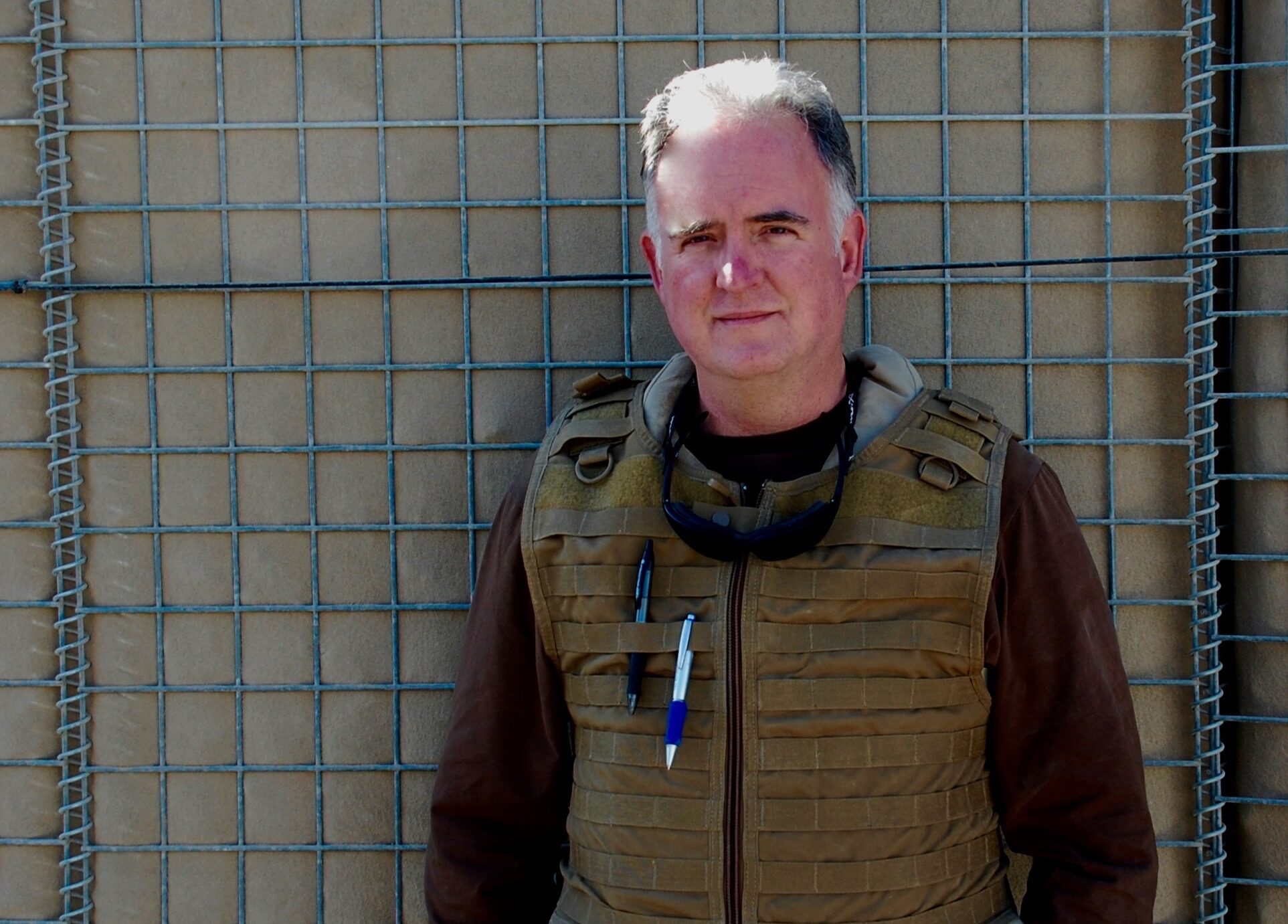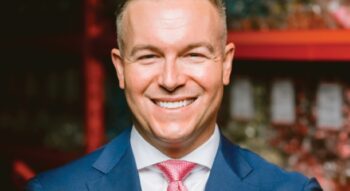Wherever he’s reporting from — Ottawa, Africa, Ukraine or the Arctic Circle — Murray Brewster’s journey as one of this country’s impactful journalists has made him a familiar and reassuring voice to millions of Canadians.
Currently the CBC’s Parliamentary Defence and Foreign Policy reporter, Brewster is quick to say that his Niagara College education (Journalism, 1985) helped him become a professional who strives to inform and benefit not only Canadians but victims of conflict around the world.
Within four years of graduating from NC, he was a radio station news director, before joining The Canadian Press news service where through 22 years he took on national and international assignments. Then six years ago he was hired away by the CBC.
Besides reporting on Canadian events from the Parliamentary Press Gallery, Brewster is also a war correspondent frequently assigned to the front lines of global conflicts. He’s one of a handful of Canadian journalists who risk their own safety so people back home — including government decision-makers — can be more aware of how effectively Canada defends its sovereignty, supports allies, and protects freedom and human rights.
Brewster has lost count of how many countries he’s reported from, but the list has touched almost every continent. This year alone he went to several Baltic nations and to Ukraine, reporting on the suffering caused by Russia’s invasion, as well as the response of NATO forces.
During Canada’s 2001-14 combat mission in Afghanistan, Brewster racked up 15 months of reporting from that battle zone on multiple deployments, more than any other Canadian journalist. Besides keeping Canada abreast of the military’s activities and well-being, his transparency also examined sensitive issues like the interrogation of captured Taliban fighters. Upon returning home he shared his personal experiences and insights in a compelling first-hand book, The Savage War: Untold Battles of Afghanistan.
Brewster’s ability to get the job done in difficult circumstances often makes him the first one editors send to the chaotic scenes of breaking news. In 2001 he was among the first Canadian journalists into New York following the 9/11 attacks, filing a stream of dispatches from a stunning atrocity that changed the course of history. In 2005 he reached and reported from the scene of devastating terrorist train bombings in London, UK.
Years before becoming a globetrotting reporter, it was a turn of his own personal fate that led Brewster to Niagara College. After high school he had planned to attend university to study journalism, but after the death of his father he needed to stay closer to home to help his family.
“When I took a closer look at Niagara College, I saw it had many of the same opportunities and a broader field of study,” he said. “It quickly became the natural choice.
“Niagara College gave me both the academic and practical grounding to succeed. My instructors instilled in me a personal sense that there are no problems, only solutions and opportunities. That can-do spirit I can trace directly to my time at Niagara.”
In an age when public anxieties can be inflamed and misled by conspiracies or falsehoods spread through social media or alternative “news” sites, it has never been more important for Canadians to have journalists like Brewster to professionally confirm and report verifiable facts.
His work has earned him 14 national Radio and Television News Director Awards; two Atlantic Journalism Awards; the Ross Munro Award for defence writing; the prestigious Michener Award Certificate of Merit for public service in journalism; and a finalist citation in the prominent National Newspaper Awards.
Beyond awards, there have also been special moments when he realized that his efforts can actually change peoples’ lives, like when a traumatized Afghan war veteran told Brewster that his stories helped the soldier survive through the painful haze of PTSD.
“I have been extraordinarily lucky to see many parts of the world and tell the stories of people who, despite losing everything, have been gracious enough to let me — and our readers, listeners and viewers — into their lives.
“My proudest moment is when a major event happens, watching dedicated journalists searching for clarity and truth on behalf of the public,” he said. “But the best job I ever had, the one I treasure most, has been being a dad to two wonderful, smart, compassionate children, who have long since passed into adulthood.”



